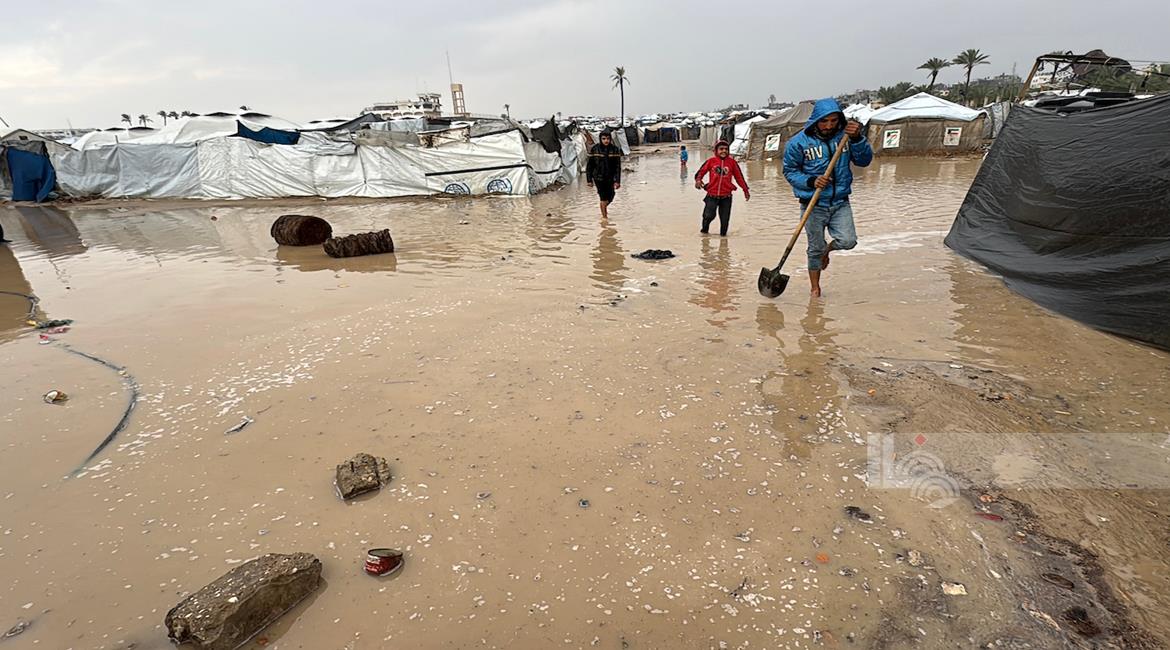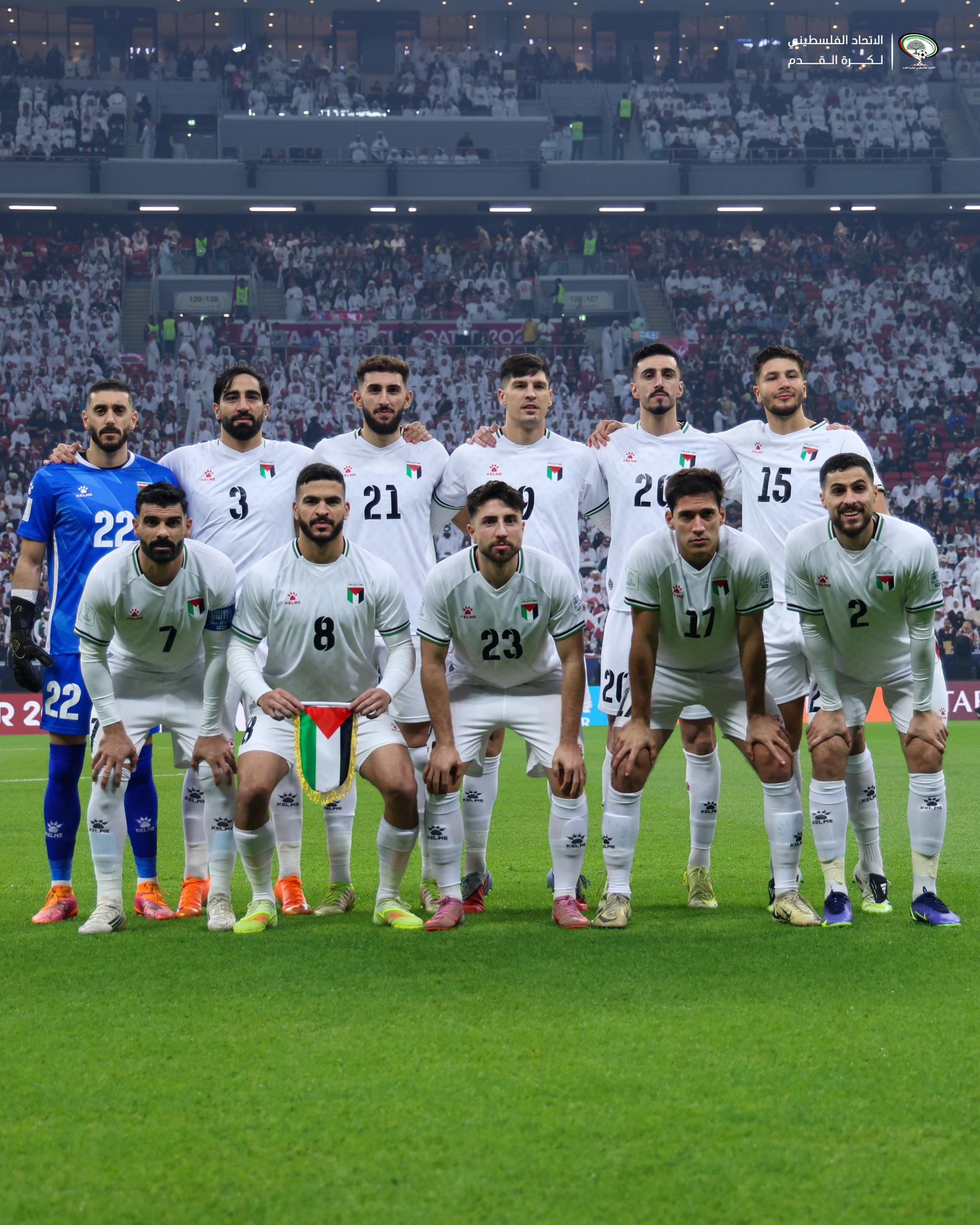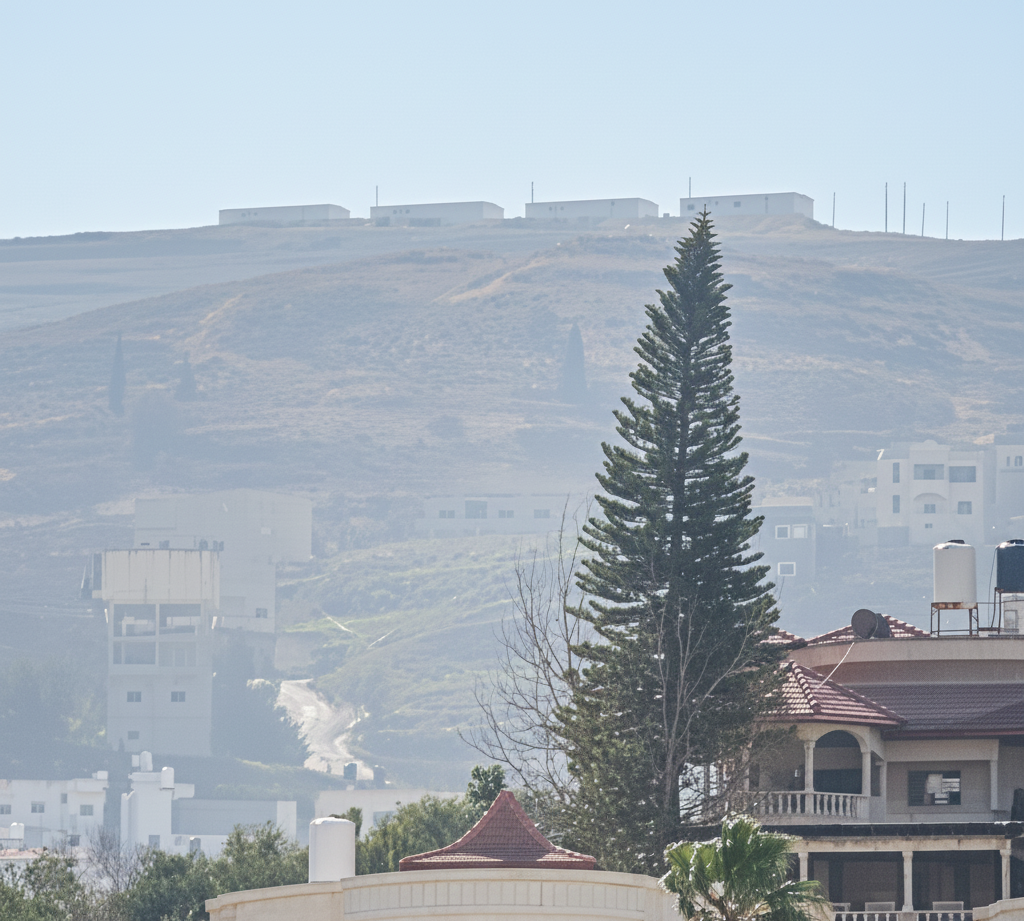The Robotics team celebrating their work.
By Ali Ghaith
JERUSALEM, Tuesday, May 14, 2019 (WAFA) - “When I first told my grandmother I was building a robot, she did not believe me, but when I showed her a video of the robot I programmed she was proud; I could see it in her eyes,” said Marwa Abu Kaff, a 14-year-old Palestinian girl from East Jerusalem, while getting ready to compete against eight other teams at Yabous Cultural Center back in March.
Abu Kaff was standing up and clutching a laptop close to her chest and her eyes fixed on the miniature robotic car, ensuring, along with her colleagues, that the car they developed does not deviate from the black track printed on the flex-made floor mat.
Marwa Abu Kaff clutching a laptop.
Her focus was undispersed because if the sensors at the bottom of the car had detected any color other than black, the 5-minute-clock would have to be reset and her team would lose marks, then adjust the programming and try again. The team had already programmed the robot beforehand but had to modify it twice in lieu of traffic errors, leaving them with one chance only. At the end of the path waits a bottle also covered in aluminum foil representing a victim of an environmental disaster.
The main aim of Abu Kaff and her teammates is to transfer the victim away from harm and into a wooden rack in a timely manner, without touching the artificial bumps, also covered with tin foil, and avoiding the green patches spread throughout the mat.
The clever simulation had the dozen youngsters on edge, ensuring every turn is calculated and with zero errors, or else the victim is endangered as well as their chance to win the prize.
The competition was organized by Faisal Husseini Foundation (FhF) within the European Union (EU) funded project “Comprehensive Upgrading Program in 15 Schools in Jerusalem,” serving a total number of 4359 students and 289 teachers. The project is mostly funded by the EU in addition to a contribution from the Bank of Palestine (BOP) as the private-sector local community partner. This project is one of the EU’s interventions in East Jerusalem that aim at preserving the character of the city and solidify the right of Palestinians to exist and thrive in East Jerusalem.
Faisal Husseini Foundation was established in 2002 to pursue the human-centered values set by the late Jerusalem civic leader Faisal Husseini; such as equality, justice, love, and fighting hatred, revenge and despair. Also to provide basic social services such as education and health. In addition to preserving the Palestinian national identity of Jerusalem.
Husseini was the first to bring a computer to East Jerusalem along with professional trainers in 1982, due to his conviction of the progressive role technology will play in the lives of the rising generations in Jerusalem, especially females. At this robotics competition, females constituted the majority of participants, and the passion for modern technology was evident among the youths.
Thus, the European Union’s firm belief in the importance of technology in the lives of Palestinian girls and boys in East Jerusalem has made supporting this program a priority.
However, just as the robotic cars were dodging hypothetical obstacles, the same children controlling the robots had to circumvent physical barriers to attend the competition.
“Our society is defying the obstacles posed by the Israeli occupation, indeed some of the children present at the competition today came from demolished homes, others came from behind the separation barrier cutting the West Bank from East Jerusalem; despite their suffering, they insist on being part of the fast-paced scientific advancement and ensure their causes are present within their scientific projects, which maintains their Palestinian identity,” said Fadwa Husseini, the Executive Manager of the Foundation. She also added that they are excited to witness the program being materialized within the hands of the children through the EU’s support after being just a dream on paper.
The scientific research and technological component in education are utilized to strengthen Palestinian children and support their resilience in facing the challenges they’re experiencing daily. Such programs are vital to the healthy development of children in East Jerusalem because the vast possibilities of science and technology can elicit inspiration and offer hope in a better future, where Palestinians can become fervent partners to the human development on an international level.
The EU provides support to Palestinian children in East Jerusalem especially on the Educational front because when coupled with research and scientific development, a democratic and pluralistic society emerges. The EU has funded two other education-related programs that were implemented by FhF; a few of the many projects the EU supports in East Jerusalem. The EU is adamant on reinforcing the resilience of Palestinians there and supporting the future Palestinian State with East Jerusalem as its capital.
Abu Kaff and her team, the Gigabyters, from Othman Bin Affan School in Sur Baher, won the first place in the Robot Design category. And although they have not won in the programming category, they remain positive and excited for their newly-found passion for Robotics, because for them, participation in such a competition is a win on itself.
And as the civil society organizations in East Jerusalem are struggling to Buy Time in Jerusalem - a slogan coined by the late Faisal Husseini signifying that the more funds being injected in East Jerusalem, the longer civil society organizations can last to develop the city and preserve its Arab-Palestinian cultural identity - their dream of achieving a just and right solution to the conflict in their city hasn’t materialized. But they persevere along with their trusted partners, such as the EU, to open the doors to Abu Kaff and her peers, who could engineer an innovative solution that brings lasting peace.
M.K.













